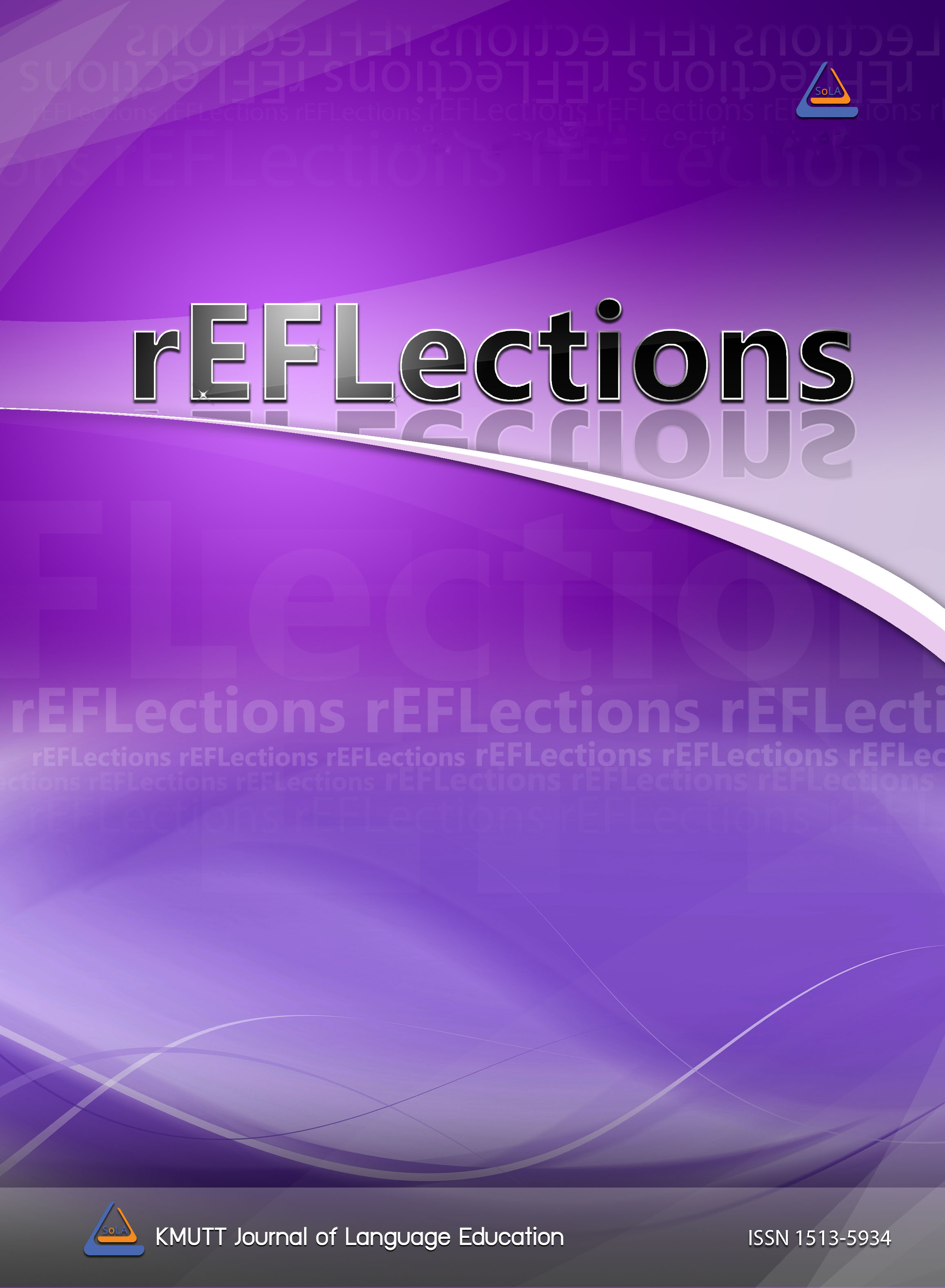Shift to Impress: How Thai LGBTs Create New Terms in Their Daily Chats
Main Article Content
Abstract
This research study aims to investigate word-formation strategies employed by Thai LGBTs in creating new terms. A number of LGBT terms were preselected from a Thai LGBT series named Diary Tootsies The Series, then validated by three external raters. The 50 remaining terms were analysed through an adapted framework of word formation (Algeo and Algeo, 1993; Bauer, 2020). The result indicates that Shift of Meaning, which is the strategy of assigning new meaning to the existing terms, was the predominant strategy employed. Shift of Meaning may possibly co-occur with some other strategies, such as using rhyme-motivated or compounding words. The use of more than one strategy may help embellish the terms and make their meaning more expressive and entertaining. As language can reflect its users’ identity, new terms created by Thai LGBTs would embrace the stereotypical image that people have about them in the ways that they are outgoing, funny, and creative.
Article Details

This work is licensed under a Creative Commons Attribution-NonCommercial-NoDerivatives 4.0 International License.
References
Algeo, J., & Algeo, A. S. (Eds.). (1993). Fifty years among the new words: A dictionary of neologisms 1941-1991. Cambridge University Press.
Bauer, L. (2020). Compounds and minor word formation types. The Handbook of English Linguistics, 463-482.
Eckert, P., & McConnell-Ginet, S. (2013). Language and gender. Cambridge University Press.
Faradisa, A., Aziz, Z. A., & Yasin, B. (2019). An analysis of word formation processes found in Instagram. Research in English and Education Journal, 4(2), 52-64.
Hafiza, M., & Rosa, R. N. (2020). An analysis of word formation of English slang used in Straight Outta Compton Movie. English Language and Literature, 9(1). Padang State University.
Iwasaki, S., Ingkaphirom, P., & Horie, I. P. (2005). A reference grammar of Thai. Cambridge University Press.
Kittiteerasack, P., Steffen, A., & Matthews, A. (2020). The influence of minority stress on level of depression among Thai LGBT adults. Jurnal Keperawatan Indonesia, 2020, 23(1), 74–84.
Kuptanaroaj, N., Srinoparut, S., Chomaithong, K., & Vichulta, B. (2020). English code-mixing in the Thai television series “The Diary Tootsies The Series Season 2”. Journal of Liberal Arts, Rangsit University, 15(2), 51-64.
Kuptanaroaj, N. (2021). A study of English loanwords in the Thai television series “The Diary Tootsies Season 1”. Journal of Liberal Arts, Rangsit University, 16(2), 42-55.
Liu, W., & Liu, W. (2014). Analysis on the word-formation of English netspeak neologism. Journal of Arts and Humanities, 3(12), 22-30.
Monjagapate, J., & Rungkittanasan, N. (2019). The study of acceptance Thai LGBTQs in Bangkok: Analysis of attitudes from Gen-Z people. International Journal of Information Privacy, Security and Integrity, 4(2), 102-114.
Phutela, D. (2015). The importance of non-verbal communication. IUP Journal of Soft Skills, 9(4), 43-49.
Pimpuang, K. (2019). PL-SKT word formatting in Thai politics: New approaches to compound Thai words. Journal of International Studies, Prince of Songkla University, 9(1), 238-262.
Rajadhon, A. (1961). The nature and development of the Thai language (Seventh Edition, 2015). The Fine Arts Department. https://www.finearts.go.th/main/view/18960-THE-NATURE-AND-DEVELOPMENT-OF-THETHAI-LANGUAGE.
Saisuwan, P. (2016). Male femininity in Thai among men who identify with non-normative male roles [Doctoral dissertation, Queen Mary University of London].
Shrestha, M., Boonmongkon, P., Peerawaranun, P., Samoh, N., Kanchawee, K., & Guadamuz, T. E. (2020). Revisiting the ‘Thai gay paradise’: Negative attitudes toward same-sex relations despite sexuality education among Thai LGBT students. Global public health, 15(3), 414-423.
Srinarawat, D. (2007). Thai political slang: Formation and attitudes towards usage. International Journal of the Sociology of Language, 95-107.
Suriyasarn, B. (2016). Sexual orientation and transgender issues in organizations. Discrimination and marginalization of LGBT workers in Thailand (pp. 197-215). Springer.
Tabouret-Keller, A. (2017). The handbook of sociolinguistics. Language and identity (pp. 315-326). Blackwell Publishing Ltd.


